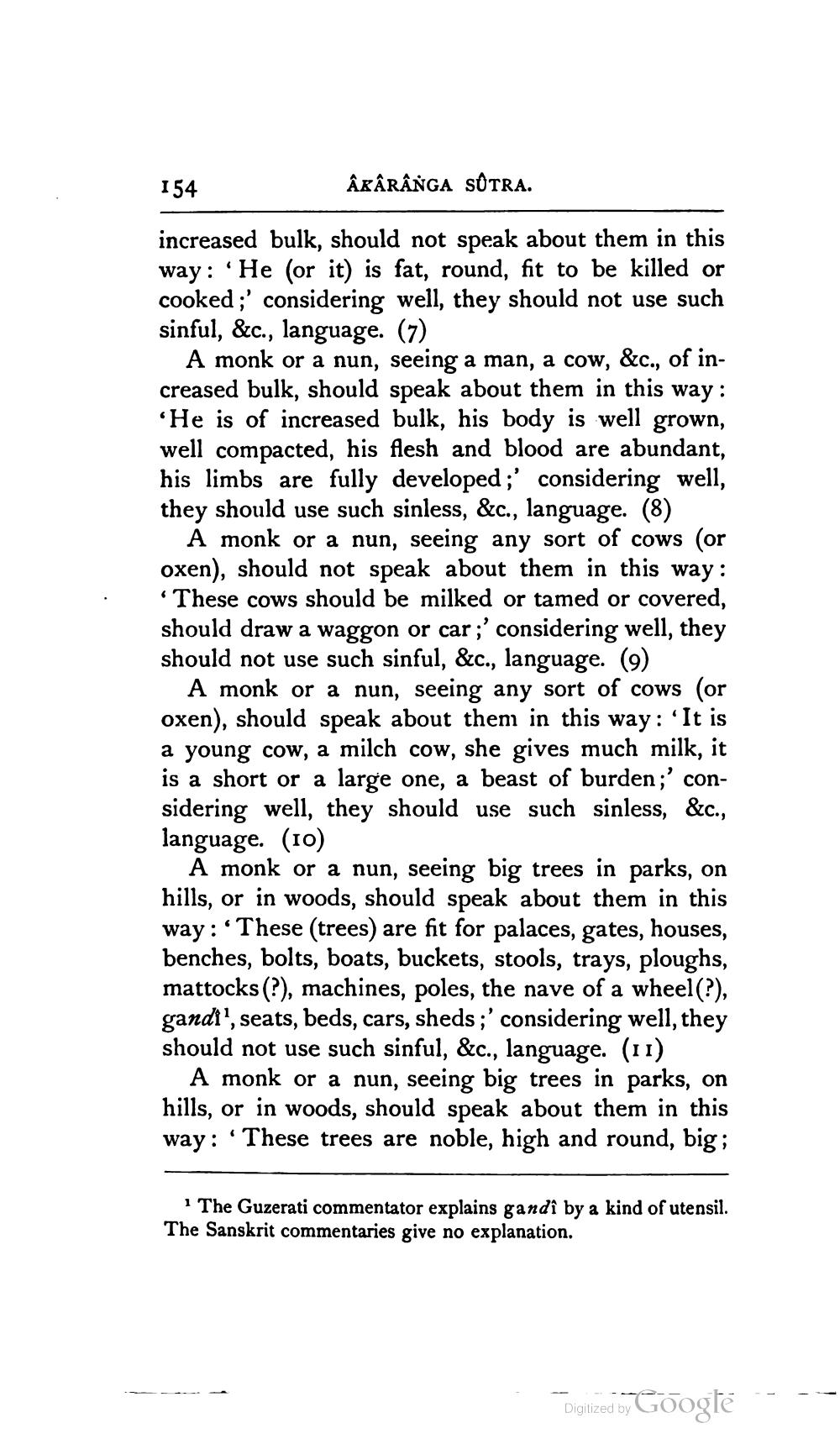________________
154
ÂKÂRÂNGA SÒTRA.
increased bulk, should not speak about them in this way: 'He (or it) is fat, round, fit to be killed or cooked ;' considering well, they should not use such sinful, &c., language. (7)
A monk or a nun, seeing a man, a cow, &c., of increased bulk, should speak about them in this way: "He is of increased bulk, his body is well grown, well compacted, his flesh and blood are abundant, his limbs are fully developed ;' considering well, they should use such sinless, &c., language. (8)
A monk or a nun, seeing any sort of cows (or oxen), should not speak about them in this way: *These cows should be milked or tamed or covered, should draw a waggon or car;' considering well, they should not use such sinful, &c., language. (9)
A monk or a nun, seeing any sort of cows (or oxen), should speak about them in this way: 'It is a young cow, a milch cow, she gives much milk, it is a short or a large one, a beast of burden;' considering well, they should use such sinless, &c., language. (10)
A monk or a nun, seeing big trees in parks, on hills, or in woods, should speak about them in this way: ‘These (trees) are fit for palaces, gates, houses, benches, bolts, boats, buckets, stools, trays, ploughs, mattocks(?), machines, poles, the nave of a wheel(?), gandi', seats, beds, cars, sheds ;' considering well, they should not use such sinful, &c., language. (11)
A monk or a nun, seeing big trees in parks, on hills, or in woods, should speak about them in this way: ‘These trees are noble, high and round, big;
The Guzerati commentator explains gandî by a kind of utensil. The Sanskrit commentaries give no explanation.
Digitized by Googte ---




